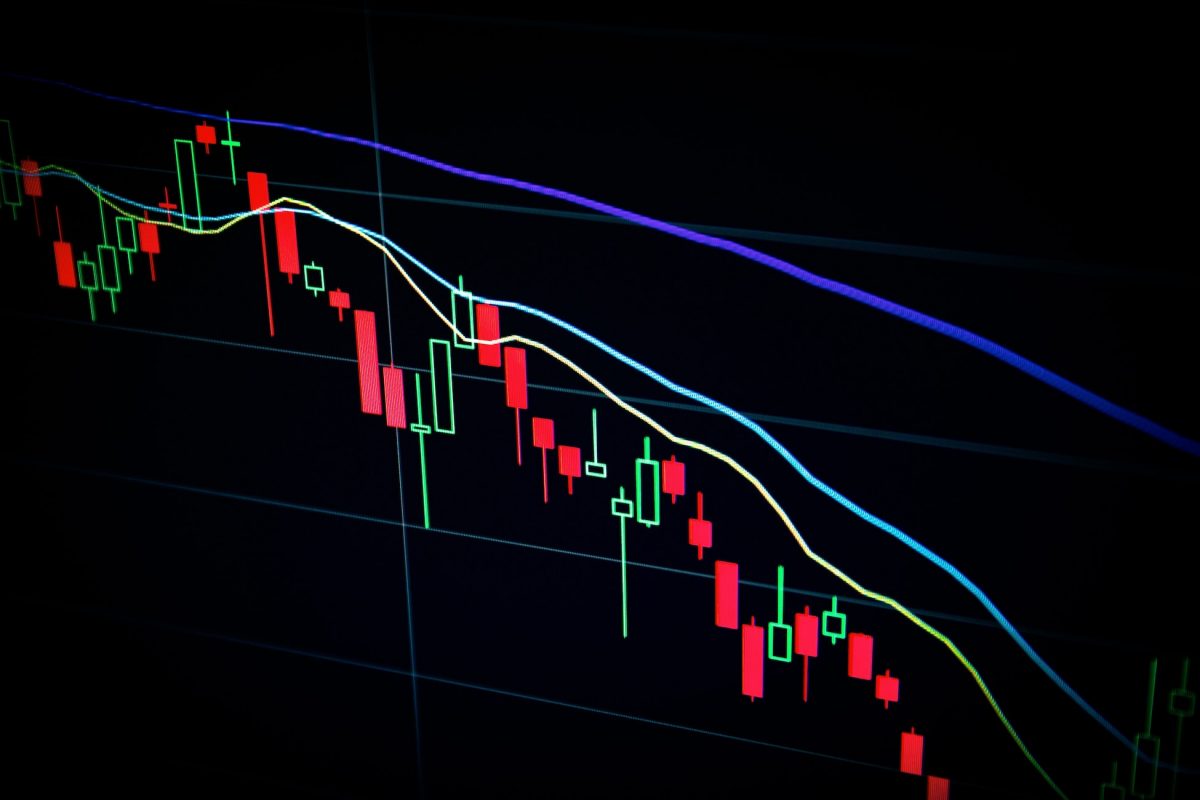Ever wondered whether Acorns or Robinhood should be your financial BFF? Welcome to the ultimate showdown where micro-investing meets commission-free trading in a head-to-head battle for your hard-earned cash. Settle in as we break down all the juicy details, fees, features, and what each platform could mean for your future—whether you’re a budding investor, a financial newbie, or just a millennial/Gen Z soul on the hunt for better money moves.
Acorns Vs Robinhood Table of Contents
Getting to Know the Contenders: Acorns and Robinhood
Side-by-Side: Acorns vs Robinhood Comparison
Which Platform Fits Your Financial Persona?
Investment Education and Community: Empowering the Next Generation of Investors
Mobile Technology and User Experience: Apps that Speak Your Language
Risks, Rewards, and the Psychology of Investing
Insights from the Financial World: Expert Opinions and Data Trends
Resources and Community Support: Your Next Steps
A Deep Dive: User Experiences and Real-Life Stories
Tech Tools and Educational Platforms: Expand Your Financial IQ
Advanced Features and Future Upgrades: Where the Platforms are Headed
Understanding the Jargon: A Quick Glossary for Young Investors
Putting It All Together: Your Investment Future, Your Way
Acorns vs Robinhood FAQs: Your Burning Questions Answered
Embracing the Future: Your Personalized Roadmap to Financial Wellbeing
Getting to Know the Contenders: Acorns and Robinhood
Picture this: Acorns is like that quirky friend who rounds up every penny from your coffee purchases and plants them in a diversified portfolio, while Robinhood channels the rebellious spirit of a trader who wants to tap into the markets commission-free, often spurred by the latest TikTok trend. Both promise to democratize investing by making it accessible and fun—but they each have their own flavor, approach, and secret sauce.
In today’s fast-paced, app-driven world, where every dollar carries weight and every decision feels like a gamble, it’s essential to know what you’re getting into. So, what exactly do these platforms offer? Let’s dive deep into their functionalities, costs, strategies, and the overall user vibe that might just transform your financial journey.
The Lowdown on Acorns
Imagine an app that’s like a digital piggy bank with brains—Acorns. It’s designed for users who prefer a “set it and forget it” approach to investing. Acorns takes your spare change and invests it into a diversified portfolio curated based on your risk tolerance. Yup, it literally makes “rounding up” brilliant.
How Does Acorns Work?
With Acorns, every time you make a purchase, the app rounds up the transaction to the nearest dollar and invests that difference. These micro-investments add up over time, and before you know it, your "spare change" has been working magic in the stock market. It’s almost like having a financial fairy godmother sprinkling magic dust on your investments.
Beyond spare change, Acorns offers automated investment strategies, tax-advantaged IRAs, and even retirement accounts. It’s tailored to help new investors get comfortable with the market without needing to deep-dive into stock research.
Fees and Pricing Structure
For a service that manages to take the mystery out of investing, Acorns does come with a recurring monthly fee. Depending on the plan, you might pay around $1 to $5 a month. While that might sound like a lot if your balance is super low, think of it as paying for a digital financial coach who’s got your back, even if you’re just starting out.
It’s also important to note that Acorns’ fee structure is built into the service—it covers everything from automatic rebalancing to portfolio advice. So, while the fees might eat into small balances over time, the benefits of passive, diversified investment may well be worth the trade-off.
Investment Options and Portfolios
Acorns offers a range of ready-made portfolios that span from conservative to aggressive. Each portfolio is designed using low-cost, exchange-traded funds (ETFs) that automatically adjust based on market conditions. This hands-off, robo-advisor approach means you don’t have to worry about picking stocks or timing the market.
The portfolios are built with long-term growth in mind, making them ideal if you’re looking to slowly build wealth over time without obsessing over daily market fluctuations. It’s like having a garden—plant the seeds, water them every now and then, and with a little patience, you might just enjoy a flourishing harvest.
The Scoop on Robinhood
Now, let’s switch gears and talk about Robinhood—the platform that’s taken the investing world by storm with its promise of commission-free trading and a streamlined, user-friendly experience. Robinhood is the go-to for those who crave real-time market access, whether you're dabbling in stocks, options, or even cryptocurrencies.
How Does Robinhood Work?
Robinhood’s mission is straightforward: simplify trading for everyone. You can buy and sell stocks without worrying about pesky commissions, which has made it particularly attractive to a younger demographic. The app’s interface is simple and intuitive, mimicking the design language of popular social media platforms—a factor that resonates well with Gen Z and millennials.
Unlike Acorns, Robinhood puts the control of your investments directly in your hands. Whether you want to trade in real-time, set up recurring investments, or dabble in unique assets like cryptocurrencies, Robinhood is built for immediacy and empowerment.
Fees and Cost Structure
Enthusiasts love Robinhood for its commission-free trades. That means no fees when buying and selling stocks, ETFs, or options. However, as with any free service, there are nuances. For instance, premium services like Robinhood Gold, which offers margin trading and additional research tools, come with a monthly fee.
While Robinhood doesn’t charge per-trade fees, the platform may still generate revenue through order flow payments, meaning brokers receive compensation for directing orders to specific market makers. It's a reminder that while the trading appears free, there’s more going on behind the scenes.
Investment Choices and Flexibility
If you love choice, Robinhood is your playground. It doesn’t restrict you to a pre-built portfolio. Instead, it gives you the freedom to hand-pick stocks, options, and even cryptocurrencies. This flexibility transforms you from a passive investor into a potential market maven—if you’re willing to do the homework.
However, with great power comes great responsibility. The freedom to trade as much as you want means you'll have to keep an eye on market trends and manage risk on your own. While Robinhood offers educational content, the onus is on you to balance your portfolio and invest wisely.
Side-by-Side: Acorns vs Robinhood Comparison
Let’s break it down further by pitting Acorns and Robinhood against each other across several key dimensions. This head-to-head will help you figure out which platform aligns better with your financial goals.
Ease of Use
Acorns is all about simplicity and automation. It’s perfect if you prefer a hands-off approach. Once you set up your account, Acorns does all the heavy lifting, rounding up your purchases and investing automatically. It’s like having a robo-assistant in your pocket.
Robinhood, on the other hand, boasts an ultra-clean, minimalist interface that makes trading feel as effortless as scrolling through your social feed. But with that freedom comes the temptation to trade frequently, which might not be ideal for a long-term investor who isn’t an active day trader.
Target Audience
Acorns is tailored for the cautious, long-term investor. Its automated savings approach appeals to those who might not have huge sums of money to invest upfront but believe in the power of gradual growth. It’s especially attractive if you’re looking to invest without needing a finance degree or spending hours analyzing the market.
Robinhood, meanwhile, caters to the more daring investor—those hungry for market action and ready to experiment with commission-free trades. It’s a haven for self-directed traders and those who enjoy the thrill of market volatility, but it might not be the best bet if you’re all about set-and-forget investing.
Fees and Revenue Models
In Acorns’ world, you’re paying a monthly fee regardless of how much you invest. This is somewhat justified by the convenience and automated management bundled into the service. If your account balance is high, these fees can seem negligible, but they might pinch if you’re just starting out.
Robinhood’s commission-free model is a big draw, especially for those making frequent trades. However, remember that its revenue comes from other corners—like order flow payments and subscription services. If you’re trading often, this can be a major cost-saving benefit, but it also means you need to be savvy about what you’re trading and why.
Investment Strategies and Options
Acorns takes the guesswork out of investing. It automatically selects a diversified ETF portfolio based on your risk profile, making it ideal if you’re looking for a passive, long-term growth strategy. It’s a great option if you want to “set it and forget it” and watch your accumulation of spare change turn into a potentially robust portfolio.
Robinhood, conversely, offers complete trading freedom. Whether you’re into stocks, options, or cryptocurrencies, you’re the captain of your own ship. This diversity in choices empowers you to craft a bespoke investment strategy, but it also requires that you become more educated about each asset class.
Security and Regulation
Both platforms are regulated, but they take slightly different approaches to risk management. Acorns partners with trusted institutions to keep your investments diversified and relatively safe while still offering a chance to grow steadily over time.
Robinhood, appealing to the more adventurous investor, has weathered its share of controversies and technical hiccups. It’s crucial to understand that while trading commissions are free, the fast-paced nature of the app can sometimes lead to impulsive decisions or miscommunications—so make sure you do your due diligence.
Which Platform Fits Your Financial Persona?
Ultimately, your choice between Acorns and Robinhood boils down to your investing style and comfort level. If you’re a fan of automation, low-entry barriers, and a sprinkle of passive investing genius, Acorns might just be your ride-or-die companion on your financial journey.
But if you’re looking for that adrenaline rush of real-time trading, the power to pick and choose your stocks, or even dabble in cryptocurrencies, Robinhood could be your ultimate financial playground. Just remember to trade responsibly and stay informed.
Both platforms come with their own sets of pros and cons. Consider your financial goals, how much time you want to dedicate to actively managing your investments, and which interface and fee structure feel more aligned with your lifestyle. And hey, if you’re still not sure, why not experiment with both? Many users dip their toes in each to see what works best for their unique needs.
Investment Education and Community: Empowering the Next Generation of Investors
In this era of social media influencers and online financial gurus, both Acorns and Robinhood have cultivated communities that share tips, success stories, and sometimes hilarious trading mishaps. From YouTube channels explaining how to build a solid portfolio to Reddit threads filled with trading memes, you’re never short of resources.
For those who are curious about the world of investing but feel overwhelmed by stock charts and market jargon, these communities serve as a treasure trove of insights, support, and relatable humor. A quick dive into the comment sections or community forums can reveal diverse experiences—ranging from the cautious saver who slowly grew a portfolio with Acorns to the ambitious trader who found their stride on Robinhood.
If you’re new to investing, soak in the wealth of information available through podcasts, blogs, and social media channels. The key is to start with what you have and gradually build your knowledge base, knowing that every financial decision, big or small, is a learning experience.
Mobile Technology and User Experience: Apps that Speak Your Language
Let’s face it—if you’re a millennial or Gen Z investor, you want your investment apps to be not only functional but also slick and intuitive. Both Acorns and Robinhood understand the need for a seamless user experience, packing their apps with features that appeal to the tech-savvy.
Acorns provides a visually pleasing dashboard that gives you a snapshot of your portfolio with all the metrics you need, plus educational tidbits that demystify the basics of investing. It’s like having a financial report and a pep talk all rolled into one.
Robinhood, by contrast, is built for speed and functionality. Its minimalistic interface means you can check your portfolio, execute trades, and keep your finger on the pulse of the market within seconds. The app is designed to keep you engaged without overwhelming you with information—much like scrolling through your favorite social media feed.
Both apps are continually evolving based on user feedback, which means your input can literally shape the features you see tomorrow. It’s a win-win for tech enthusiasts who believe in a collaborative financial future.
Risks, Rewards, and the Psychology of Investing
Investing isn’t just about numbers—it’s about emotions, psychology, and making decisions that can sometimes feel like a roller coaster ride. Whether you choose Acorns for its quiet, steady approach or Robinhood for its potential reward and thrill, it’s crucial to remember that every investment involves risk.
With Acorns, the strategy is built around gradual, long-term growth. The idea is that small changes add up over time, much like saving cents in a piggy bank. Robinhood, however, opens the door to more frequent trading, which can potentially yield quick wins but might also expose you to volatility.
It’s a psychological game as much as a financial one. The fear of missing out (FOMO) and the temptation of a quick profit can be overwhelming—especially when you see trending stocks on social media. The trick is to set clear investment goals, understand your risk tolerance, and know when to walk away or hold on tight.
For many young investors, the journey starts with learning how to manage both the practical and emotional aspects of money management. Whichever route you choose, remember that investing is a marathon, not a sprint.
Insights from the Financial World: Expert Opinions and Data Trends
Financial experts are divided on whether micro-investing or commission-free trading is the future, but one thing is clear: both Acorns and Robinhood have achieved remarkable success by demystifying investing for everyday people. According to studies, younger demographics are increasingly leaning towards platforms that offer simplicity and transparency in fees.
Research indicates that a steady, passive investment strategy can yield impressive returns over decades, especially when market fluctuations are smoothed out by consistent contributions. On the flip side, commission-free trading platforms have democratized access to stocks, options, and cryptocurrencies—allowing users to build wealth on their own terms, albeit with a higher dose of market unpredictability.
The data trends show a clear correlation between digital engagement and financial literacy, highlighting the value of communities and user-friendly interfaces for fostering smarter investment decisions. Whether you’re looking to slowly build wealth with Acorns or jump into the market with Robinhood, staying informed is your best asset.
Resources and Community Support: Your Next Steps
Now that you’ve got the lowdown on Acorns and Robinhood, it’s time to take action. Begin by exploring trusted financial blogs, podcasts, and webinars that dive deeper into micro-investing and commission-free trading. Follow financial influencers on Instagram, Twitter, or TikTok who break down market news in digestible, humorous bites.
Consider joining online communities—subreddits, Facebook groups, or Discord channels—where you can exchange tips, share success stories, and even laugh about the latest market memes. Peer support can not only boost your confidence but can also provide you with firsthand insights and cautionary tales from real users.
If you’re just starting out, a good next step is to set up accounts on both platforms (if you’re curious) and track your progress over a few months. Use educational resources within the apps, and don’t hesitate to reach out to community forums when you’re unsure about a trading decision. Remember, every seasoned investor was once a novice learning the ropes.
Stay curious, keep experimenting, and leverage these platforms as tools to educate and empower your financial future. Your journey to better financial wellbeing is a continuous learning experience—and you’re in the driver’s seat.
A Deep Dive: User Experiences and Real-Life Stories
Let’s face it—nothing beats the power of a real-life story. Thousands of users have taken their first steps into investing with either Acorns or Robinhood, each with unique experiences that highlight both successes and learning curves.
User Tale 1: Micro-Investing Miracles with Acorns
Jenna, a recent college grad, started with Acorns to tame her chaotic monthly budget. By rounding up every coffee purchase, those extra pennies eventually transformed into a diversified portfolio that gave her the confidence to start thinking about retirement—even if it feels lightyears away. Jenna says the app’s ease of use and automated advice kept her from feeling overwhelmed, helping her build a solid financial base without needing a finance degree.
User Tale 2: The Thrills and Spills of Robinhood Trading
Then there’s Chris, a self-proclaimed market tinkerer who relished the freedom Robinhood offered. Between staying up late to track market trends and diving into the volatile world of cryptocurrency, Chris found both wins and losses. “It’s definitely a wild ride,” he admits, “but learning to manage risk and setting firm boundaries helped me become a more disciplined trader.” His journey underlines the importance of preparedness and the sometimes unpredictable nature of commission-free trading.
User Tale 3: Combining Strategies for a Balanced Approach
Many modern investors aren’t confined to just one platform. Alex, for instance, uses Acorns to manage long-term savings while dabbing into Robinhood for occasional hands-on trading. This hybrid strategy lets Alex enjoy the best of both worlds—passive growth and active control—adapting to different financial goals as life evolves. Alex’s approach highlights that there’s no one-size-fits-all formula in investing; it’s about crafting a strategy that resonates with your personal style and risk tolerance.
These stories, filled with ups and downs, underscore that every investment journey is unique. Whether you lean towards the automation of Acorns or the dynamic hands-on approach of Robinhood, remember that resilience, learning from mistakes, and adapting your strategy are all part of becoming a savvy investor.
Tech Tools and Educational Platforms: Expand Your Financial IQ
Beyond the trading apps themselves, there’s a world of tech tools and educational platforms that can help you level up your investing game. From online courses on platforms like Coursera and Udemy to easy-to-digest YouTube tutorials and finance-centric podcasts, the internet is teeming with resources designed to refine your understanding of the market.
It may sound overwhelming at first, but think of it as building your own digital “money toolbox.” Over time, tools like portfolio trackers, news aggregators, and market analysis apps can work in tandem with Acorns or Robinhood, helping you make decisions based on both data and intuition. These resources can be particularly helpful if you’re just starting out, offering guidance from foundational investment principles all the way to advanced market analysis.
Remember, financial literacy isn’t built overnight. Integrating educational content into your daily routine not only helps you feel more confident but also allows you to avoid common pitfalls that come with diving headfirst into the financial markets.
Advanced Features and Future Upgrades: Where the Platforms are Headed
Financial technology is an ever-evolving landscape, and both Acorns and Robinhood are continuously updating their features to better serve their users. Imagine a future where your investment app not only tracks spending and investments but also uses artificial intelligence to offer hyper-personalized financial advice based on your spending habits, life goals, and market trends.
For Acorns, future upgrades might include more nuanced portfolio customization based on real-time economic data, deeper integrations with your bank accounts, or even partnerships that offer exclusive discounts that funnel extra cash into your investment pot. On the flip side, Robinhood may expand its range to include more asset classes or introduce more robust risk management tools to aid those dabbling in volatile markets.
These advanced features are designed to make investing not only more accessible but also more intuitive. For the tech-savvy investor, this means a future where making informed financial decisions is as seamless as using your favorite app.
Understanding the Jargon: A Quick Glossary for Young Investors
The world of investing can be a maze of acronyms and buzzwords that might make your head spin. To help you navigate, here’s a quick glossary of frequently used terms:
- ETFs (Exchange-Traded Funds): Investment funds that trade on stock exchanges, offering diversification across various assets.
- Robo-Advisor: Automated platforms that provide investment management with little to no human supervision.
- Commission-Free Trading: Trading that doesn’t charge fees per transaction, popularized by platforms like Robinhood.
- Micro-Investing: Investing small amounts of money, often by rounding up everyday transactions, to build a diversified portfolio over time.
- Order Flow: The process by which orders are directed to market makers—in Robinhood’s case, a source of revenue that doesn’t cost you a penny per trade.
- Risk Tolerance: The degree of variability in investment returns that an investor is willing to withstand.
Keep these terms in your back pocket as you explore the exciting territory of digital investing.
Putting It All Together: Your Investment Future, Your Way
At the end of the day, whether you gravitate towards Acorns’ effortless micro-investing or Robinhood’s fast-paced, commission-free trades, the most important part is taking that first step. Both platforms have carved out unique niches in a rapidly evolving financial ecosystem, offering avenues that cater to a variety of investing styles.
Your financial journey is as unique as your fingerprint. You might start with the simplicity of Acorns then graduate to the DIY ethos of Robinhood, or vice versa. What matters is that you’re making an informed decision, leveraging technology, and embracing a growth mindset that turns every market dip into a learning experience.
The future of investing isn’t reserved for one exclusive method. It’s a blend of technology, community, and personalized strategies that empower you to grow your money in a way that resonates with who you are. So, decide if you’re more a “spare change hero” with Acorns or a “market maverick” with Robinhood—and then set out to conquer your financial goals on your terms.
Acorns vs Robinhood FAQs: Your Burning Questions Answered
Here are some frequently asked questions that can help clear up any doubts and guide you on your investment journey.
1. What is the primary difference between Acorns and Robinhood?
Acorns automates micro-investing by rounding up purchases and investing the spare change into diversified portfolios, while Robinhood allows you to trade stocks, ETFs, options, and cryptocurrencies directly, commission-free.
2. Which platform is better for beginner investors?
Beginners who prefer a hands-off approach may find Acorns more appealing due to its automation and long-term strategy. However, those keen to learn market dynamics and actively trade might gravitate towards Robinhood.
3. What are the fee structures for both platforms?
Acorns charges a monthly fee that varies based on the plan you choose, which may seem higher for smaller investments. Robinhood offers commission-free trades, though premium features like margin trading through Robinhood Gold involve a fee.
4. How do the investment options compare between the two?
Acorns offers pre-built, diversified ETF portfolios that align with your risk preferences, making it ideal for passive, long-term growth. Robinhood provides the flexibility to choose individual stocks, options, and even cryptocurrencies, suiting those who want a more hands-on approach.
5. Is one platform safer than the other?
Both platforms are regulated and work with reputable financial institutions, but the level of risk depends more on your investment strategy. Acorns’ diversification tends to reduce risks, while Robinhood’s approach can expose you to higher volatility if you’re actively trading.
6. Can I use both platforms simultaneously?
Absolutely. Many investors find value in using Acorns for automatic, long-term investing and Robinhood for more active trading. Combining both might offer a balanced approach to building and managing wealth.
7. How accessible are these platforms to new investors?
Both are designed to be user-friendly and accessible on mobile devices, with interfaces that appeal to tech-savvy millennials and Gen Z investors. They also offer a variety of educational resources to help you learn as you go.
Whether you’re taking a cautious first step or diving headfirst into the market frenzy, these FAQs can help you navigate your decision-making process.
Embracing the Future: Your Personalized Roadmap to Financial Wellbeing
The decision between Acorns vs Robinhood isn’t just about picking a financial service—it’s about choosing a lifestyle. It’s about integrating technology, learning continuously, and ultimately taking control of your financial destiny the way you want. Whether you lean towards the thoughtful accumulation of spare change or crave the rush of fast-paced trading, the future of investing is all about personalization and empowerment.
To carve out your own roadmap, start by setting tangible financial goals. Are you saving for a dream vacation, a new home, or preparing for a secure retirement? Once your goals are crystallized, think about how much time you’re willing to devote to managing your investments. Perhaps you can even consider experimenting with both platforms on a small scale to truly understand which one resonates with your investing style.
Surround yourself with educational content, engage with online communities of like-minded investors, and continuously refine your strategy as you learn more about your risk tolerance and financial aspirations. Your journey might have twists and turns, but every experience is a stepping stone towards a more secure financial future.
Remember, the future of finance is digital, dynamic, and undeniably personal. Use the insights, tools, and communities at your disposal to not only invest wisely but also to inspire confidence and resilience in managing your wealth.
Step forward with curiosity, equip yourself with knowledge, and let your financial journey be as unique as your digital fingerprint—a fusion of strategy, technology, and a bold spirit ready to conquer new horizons.













